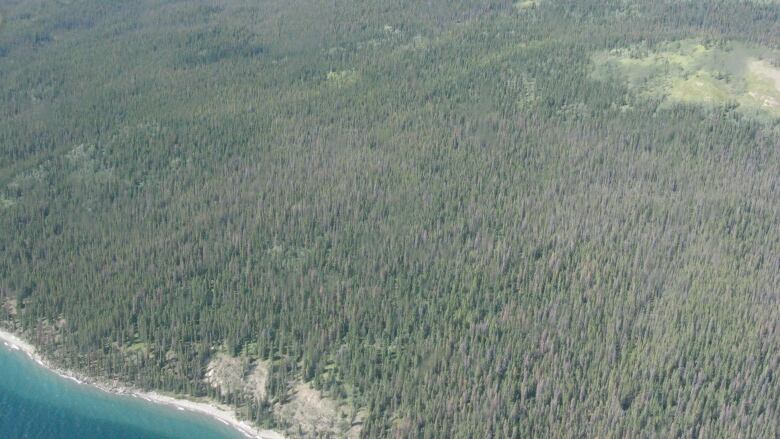Yukon on alert for spruce beetle resurgence
'Spruce bark beetle is the most destructive pest to Yukon's spruce stands,' says forest health specialist.

It's been a few years since Yukon's last devastating spruce bark beetle infestation petered out, but government forest officials are trying to determine the risk of a resurgence.
According to the territorial government, Yukon experienced the most severe and long-lasting spruce beetle infestation in Canada, beginning in the early1990s. Over two decades, it spread across 400,000 hectaresof white spruce forest in southwest Yukon,before finally fizzling out leaving what seemed like anendless supply of dead trees along the way.
The territorial government will undertake a "hazard assessment" this summer, to get a handle on how likelyanother massive infestation is, and figure out how the government might respond.
"We know that spruce bark beetle is the most destructive pest to Yukon's spruce stands," said Rob Legare, Yukon'sforest health specialist.
"There's some concern that there may be another infestation so we're trying to mitigate that by doing this hazard assessment."
Spruce beetles are always present in Yukon's boreal forest, but environmental factors for example, droughtcan make trees more vulnerable to attack and therefore raise the chanceof a large infestation that also kills otherwise healthy trees. Drought stress is believed to have been a factor in the last major infestation.
"There are areas within Yukon where we see signs of drought," Legare said, "but not at a huge level, at this point."
Outbreak in NorthernB.C.
Yukon's concerns coincide with a new spruce bark beetleoutbreak in Northern B.C., the largest since the 1980s. So far, the insects have taken more than 150,000 hectaresof forest in the Prince George area.
That infestationis being connected to recent warmer weather patternsas well as an increase in felled trees due to windstorms.
Katherine Bleiker, a research scientist at the Canadian Forest Service, said it's unlikely thought not impossible that the B.C. infestation could spread northward as far as Yukon.
"They would need a highway of susceptible spruce, or wind currentsto push them in that direction, so there's probably a lower probability of that happening thanthose in situ, endemic populations that you already have responding to a local event."
That "local event," however, could be the warmer, drier weather. Mild winters and warm summers create ripe conditions for anoutbreak.
"If drought stress was severe enough, they could respond to that," Bleiker said.
"This could be sort of a newer thing for the Yukon, due to changes in weather, in climate."












_(720p).jpg)


 OFFICIAL HD MUSIC VIDEO.jpg)
.jpg)



























































































